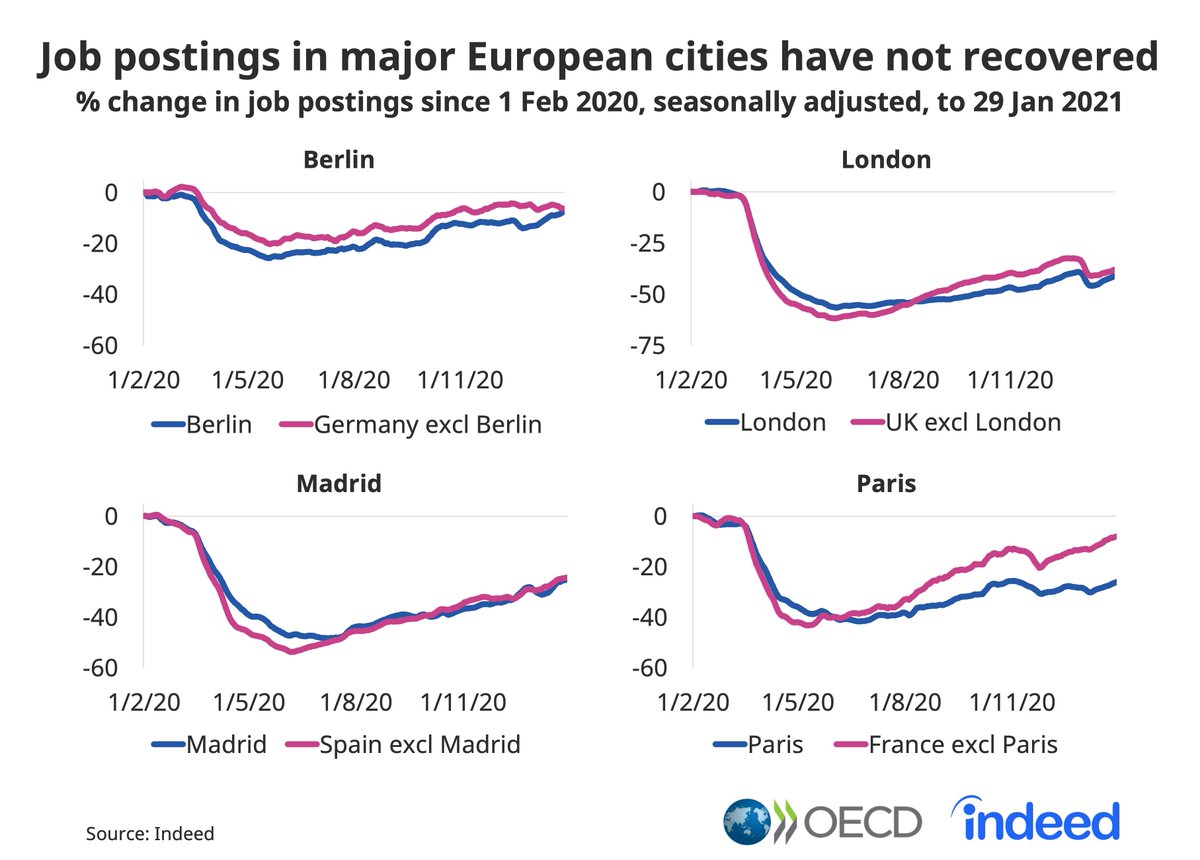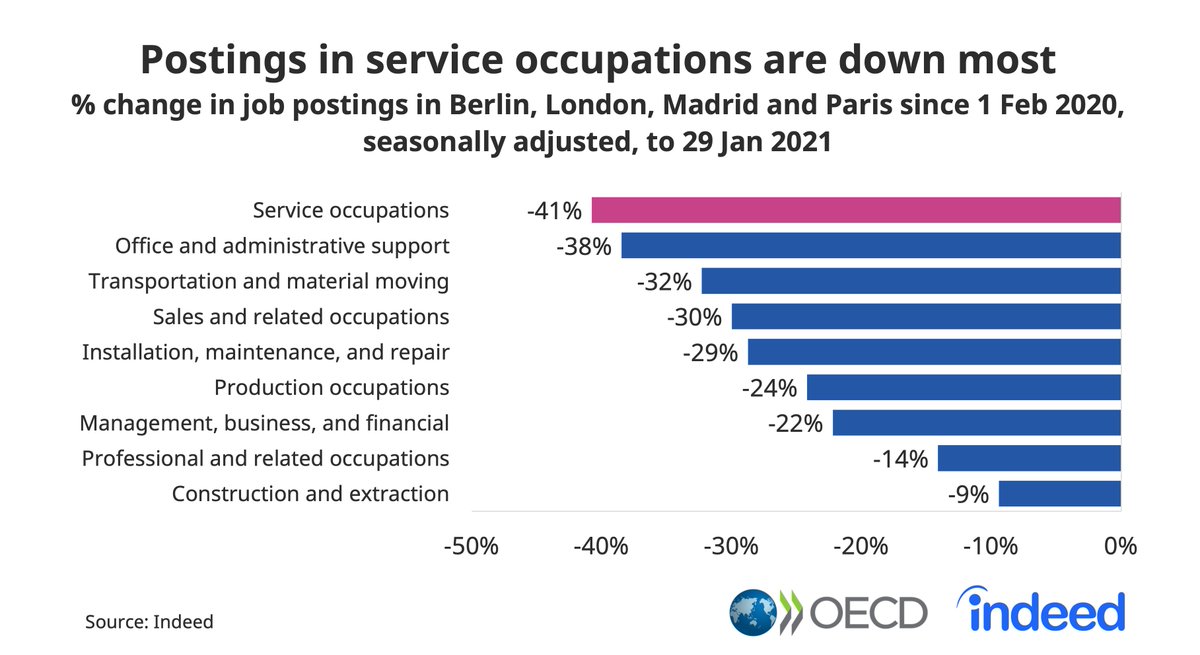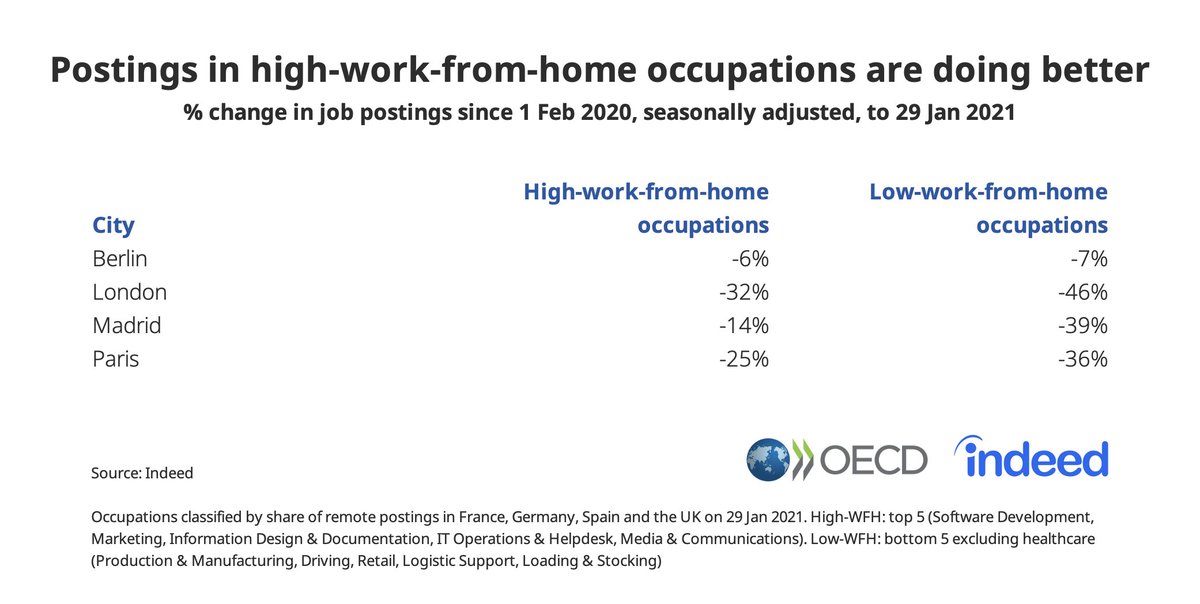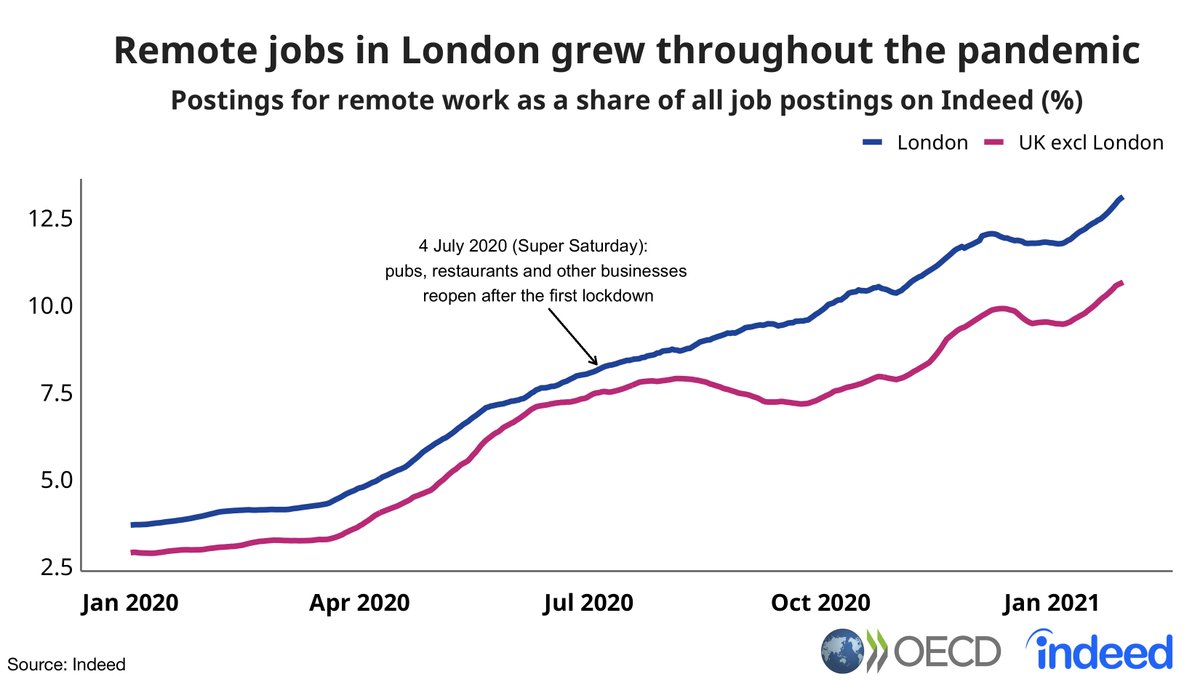Job postings in the 4 largest Western European capitals are well below their pre-pandemic levels.
Lukas Kleine-Rueschkamp ( @OECD_local) and I looked at what these trends might mean for city labour markets in the post-pandemic future.
A short thread
https://www.hiringlab.org/uk/blog/2021/02/19/after-the-boom-covid-19-and-european-city-labour-markets/
Lukas Kleine-Rueschkamp ( @OECD_local) and I looked at what these trends might mean for city labour markets in the post-pandemic future.
A short thread
https://www.hiringlab.org/uk/blog/2021/02/19/after-the-boom-covid-19-and-european-city-labour-markets/
First, which kinds of jobs are dragging down total postings? On average across the 4 cities we looked at:
Construction and professional occupations are performing best.
Service, office & administrative occupations are performing worst - unsurprisingly - as lockdowns continue.
Construction and professional occupations are performing best.
Service, office & administrative occupations are performing worst - unsurprisingly - as lockdowns continue.
One useful way to summarise these different occupational trends is this:
Job postings in high-work-from-home occupations are holding up *a lot* better than postings in low-work-from-home occupations.
Job postings in high-work-from-home occupations are holding up *a lot* better than postings in low-work-from-home occupations.
The shift to remote working looks deeper and more persistent in major cities than elsewhere.
E.g., London saw constant growth in the remote job posting share over the past year, even when restrictions were eased last summer.
Trends in Berlin, Madrid & Paris are similar
E.g., London saw constant growth in the remote job posting share over the past year, even when restrictions were eased last summer.
Trends in Berlin, Madrid & Paris are similar
Why does this matter? Because the shortage of lower-paid/non-remote jobs in major cities risks widening urban inequality. We propose 3 policies for local governments, based on economic research 

Policy #1 - Tailor skills development for displaced/at-risk workers to local conditions, with career guidance closely linked to adult learning https://www.oecd.org/local-forum/workshops/future-proofing-adult-learning-in-london-uk.htm
Policy #2 - Help workers switch industries, as reallocation can facilitate economic recovery after a crisis
https://www.oecd-ilibrary.org/industry-and-services/local-ability-to-rewire-and-socioeconomic-performance_31b980f6-en
https://www.oecd-ilibrary.org/industry-and-services/local-ability-to-rewire-and-socioeconomic-performance_31b980f6-en
Policy #3 - Given the concentration of digital jobs in major cities, local governments should help businesses manage the digital transformation and ensuring that workers develop basic digital skills
https://www.oecd-ilibrary.org/industry-and-services/the-digital-transformation-of-smes_bdb9256a-en
https://www.oecd-ilibrary.org/industry-and-services/the-digital-transformation-of-smes_bdb9256a-en
Full blog post here: https://www.hiringlab.org/uk/blog/2021/02/19/after-the-boom-covid-19-and-european-city-labour-markets/

 Read on Twitter
Read on Twitter





